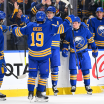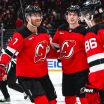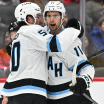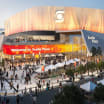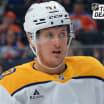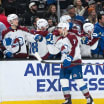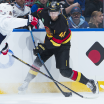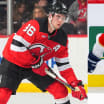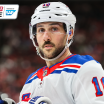Mailbag: Toews' medical issue, excitement about North Division
NHL.com's Dan Rosen answers weekly questions
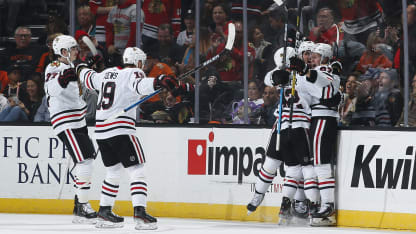
© Debora Robinson/Getty Images
Can you please make sense of the Chicago Blackhawks' direction? They say they're going youth and playing the kids but then they buy veterans that block prospects being promoted. Carl Soderberg is a decent signing, but it would indicate they want to win now instead. -- @Jimmy06243829
To answer this, I must start with a medical issue and the injuries.
Jonathan Toews
will not attend training camp
. The center said in a statement released by the Blackhawks on Tuesday that he has been dealing with symptoms that leave him "feeling drained and lethargic," and until he and his doctors figure out what is ailing him, he won't be playing competitive hockey. Chicago's captain said he's disappointed but doesn't feel he can play in his current state, and there is no timetable for his return.
Alex Nylander and
Kirby Dach
, two of the young forwards who would have been in the lineup, each was recently ruled out with an injury. Nylander, who is 22 years old, will be out 4-6 months following knee surgery, which means he'll likely miss the entire regular season. Dach, who is 19, will be out 4-5 months following surgery to repair a right-wrist fracture sustained playing for Canada at the 2021 IIHF World Junior Championship. He too could miss the entire regular season.
On top of that, the Blackhawks haven't signed restricted free agent center
Dylan Strome
.
Those are four significant reasons the Blackhawks sought help in the free agent market and signed Soderberg, a 35-year-old who scored 35 points (17 goals, 18 assists) for the Arizona Coyotes last season, to a one-year, $1 million contract. Signing Soderberg doesn't signify the Blackhawks are changing course. It signifies they needed depth at the center position. With Toews, Dach, Nylander and a guarantee of Strome, they wouldn't need Soderberg. But they do now, and he will help them. It's a smart stopgap signing.
The Battle of Alberta. Matthews vs. McDavid. Tkachuk vs. Tkachuk. Price vs. Hellebuyck. Pettersson vs. Laine. Four teams make it to the playoffs from this division. Is this the best thing to happen to Canada since the invention of French fries and gravy? Stanley Cup in Canada? -- @theashcity
A little excited, are we? Good. You should be.
The North Division, made up of the seven teams based in Canada, is like a delicious side dish to the main course that is the reimagined and realigned 2020-21 NHL season. It'll settle barroom debates that have raged for years from St. John's to British Columbia by answering, at least for this 56-game season, who is the best NHL team from Canada? One of the seven will be among the final four teams playing in the Stanley Cup Playoffs for the first time since the Winnipeg Jets in 2018. Five Canada-based teams have played in the conference final since 2008. One, the Vancouver Canucks in 2011, has reached the Stanley Cup Final since the Ottawa Senators got there in 2007. None has won the Cup since the Montreal Canadiens in 1993.
They'll be playing each other nine or 10 times this season, which means nine or 10 times of Connor McDavid vs. Auston Matthews, the Battles of Alberta and Ontario, Calgary Flames forward Matthew Tkachuk facing off against Senators forward Brady Tkachuk, and Flames goalie Jacob Markstrom trying to shut out the Canucks, his former team. Who is the best goalie in Canada, Connor Hellebuyck of the Jets or Carey Price of the Canadiens? We'll get plenty of good analysis of that. We'll have a better grasp of how the NHL shapes up in Canada by the end of the season, and there will be one of the seven teams eight wins away from ending the country's Stanley Cup drought.
Dan and EJ's divisional power rankings
New York Rangers captain? Very curious to see who will wear the "C" for the Rangers. -- @bennett732
If the Rangers are going to have one, which is not a sure thing, it should be center Mika Zibanejad. He's become the leader in the dressing room, a star and leader on the ice, an extended voice of coach David Quinn, and a go-to player for the media to get a pulse of the team. Zibanejad has found his game and voice in New York. He's a natural fit.
New York hasn't had a captain since trading defenseman Ryan McDonagh to the Tampa Bay Lightning on Feb. 26, 2018. It hasn't been a priority for the Rangers to have a captain in the first two seasons under Quinn. I'm not sure it's a must-have now this season because there is a clear leadership group led by Zibanejad that also includes forwards Chris Kreider, Artemi Panarin and Ryan Strome, and defensemen Jacob Trouba and Brendan Smith. It's easily identified, and the younger players look up to that group. Any one of them could be captain, but Zibanejad jumps off the page for me based on how he's managed his ascension into a leadership role and his ability to be the player voice of the team.
A good question I saw recently was if the referees would also be restricted to a division? How many refs per division, and will they change them in each game of doubleheaders? Wondering what the framework for the season states pertaining to this? -- @moonlighthaley
The NHL will be restricted at least at the start of the season with officials in the North Division because of the cross-border governmental restrictions in place aimed at limiting the spread of COVID-19, but it will not have the same restrictions in the three United States-based divisions, NHL director of officiating Stephen Walkom said in an email. Walkom said there are many moving parts, and some things likely will change as they progress through the season, but officials will be allowed to move more freely within the East, Central and West divisions. At this point, the NHL will have a set of officials that strictly handle the North Division because of the border restrictions. They also have officials from the American Hockey League available to work NHL games in the North Division before the AHL season begins. The AHL is tentatively scheduled to start Feb. 5.
With the flat cap coming the next few seasons and teams looking to shed salary, do you expect we will see more buyouts than usual this offseason? -- @BeerLeagueSelke
I assume you mean next offseason, but either way I don't think we will see a massive number of buyouts or anything out of the ordinary for two reasons: 1) Every team except for the Vegas Golden Knights will lose at least one player to the Seattle Kraken in the 2021 NHL Expansion Draft. That will in a lot of cases provide some relief on the NHL salary cap. 2) Buyouts are costly on the NHL salary cap ($81.5 million) and in actual dollars. Buying out a player means you keep a percentage of his cap charge on your books even though the player is not playing for you, and in many cases will eventually play against you. Buying out a player also requires a team to pay the player actual money to not play for them. They're a tool to help teams become cap compliant and to create a roster spot, but they're not exactly team friendly when you consider the cost of doing business.
Teams might prefer to waive a veteran player and save money on the cap by sending him to the AHL or, for this season, the taxi squad. The cap savings in those cases this season is $1.075 million. The other option is to find a trading partner with cap space and give up an asset on top of the players you're trading. An example is the trade between the Lightning and Senators on Sunday. Tampa Bay moved out $3.35 million in salary cap charges by trading defenseman Braydon Coburn ($1.7 million) and center Cedric Paquette ($1.65 million) to Ottawa for forward
Marian Gaborik
and goalie Anders Nilsson. Each will go on long-term injured reserve, meaning the Lightning won't be impacted by their combined cap charges.
But to make it work, the Lightning included their second-round pick in the 2022 NHL Draft. That's a valuable asset that likely made the trade work for the Senators, who can afford to take on the extra $3.35 million in cap charges and get two players they can immediately insert in their lineup. The trade still works better for the Lightning than having to buy out or bury the contracts of Coburn and Paquette.
Because of the "taxi squad," will we see most teams carry 20-21 players on the main roster to save/bank cap space for plenty of trade deadline flexibility? -- @kento19
I think this is going to happen with a lot of teams because of salary cap constraints and that players on the taxi squad can travel and practice with the team. The taxi squad should for all intents and purposes be treated as if it's the AHL because the same waiver rules apply, but the fact that these players will be easily accessible and already working with the team does make it easier for teams to carry fewer players on the roster. There will be teams that assign veteran players to the taxi squad to gain the $1.075 million cap savings. However, do not forget that if any of those players have to be recalled, the team must have the necessary salary cap space to do so.
